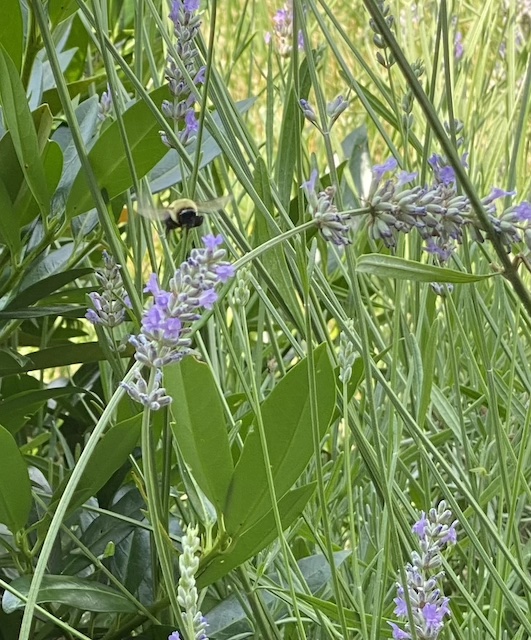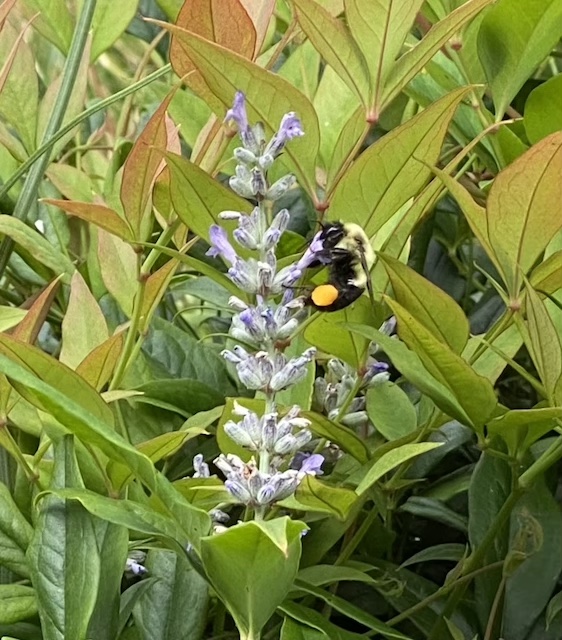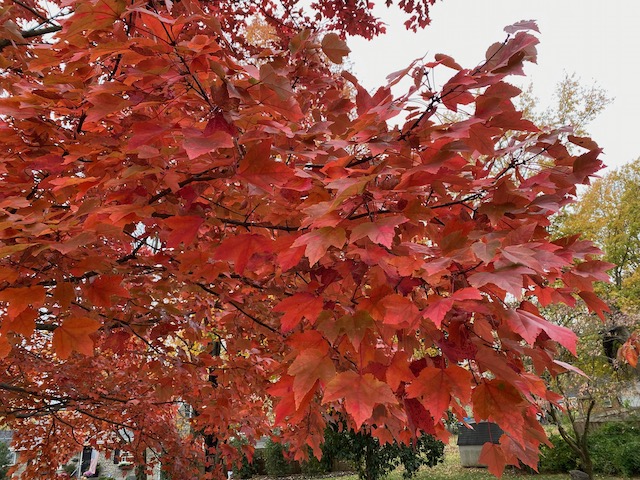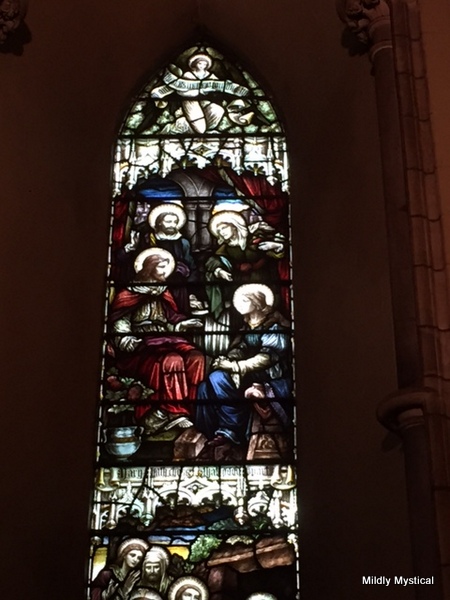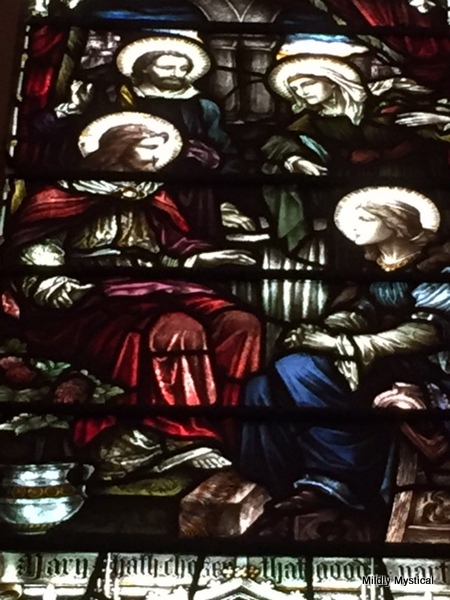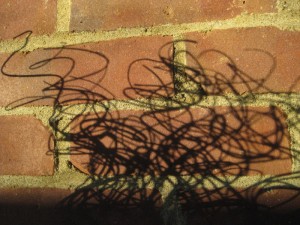The largest lavender plant I’ve ever seen is blooming beside my front porch this summer. Most of my mature plants are about ten inches tall. But this year one of them shot out stalks three or four feet long in every direction, like a botanical version of spherical fireworks. Each is tipped by a slender cone of buds opening into tiny purple flowers.
From early morning until twilight the blossoms attract bumblebees. They land heavily, bouncing at the ends of the long stalks like reverse bungee jumpers. The bees tolerate the thrill ride for the sake of lavender pollen and nectar, precious food for a nest located somewhere over the roof and beyond. Today, one of the bees is weighted with two full pollen baskets. They look like little orange balls attached to the bee’s hind legs—nature’s original cargo pants. It’s almost always four bees—for days, even weeks now, four bees at a time bobbing among the lavender stalks. The same four? I wonder.
I enjoy taking my morning coffee onto the porch, breathing the scent of lavender and observing the bees sampling bloom after bloom. In recent days I’ve watched them with a grieving friend on my mind. I wish I could make life into something that holds the sense of the purpose and beauty and peace of this small garden spot. My friend knows suffering, from long years of heartache and loss as mental illness and addiction claimed this child she loved. Even so, the death her child, of anyone’s child, at any age, is too much, whatever the circumstances. The heartbreak this world contains is terrible.
I have so little to offer her, but decide I could cut some of these enormous stalks to make a generous lavender wand, weaving prayers along with the ribbons and stems. As I work, the scent of lavender wafts not only from the flowers, but leaves and stems as well. The lavender-scented air fills my breath and my thoughts; I imagine the pleasure taken by the bees in simply navigating by this perfume.
We’re all following the fragrance that draws us in. We are compelled by what attracts us, and by what we believe we need. The natural instincts of the bees lead them to the life-giving nectar and nourishment of a flower on a swaying stem. The instincts of the human psyche are rarely so simple and pure. What we cling to and what we resist often distort our sense of what we must have. Recognizing the fragrance of what is truly life-giving, and following it to the source, is the work of a lifetime.
What can we learn from the bees? They bury themselves in the blossoms for a moment then move on, their transitory bliss part of a larger pattern. They take their fill and buzz off toward the nest, returning from their explorations with something of value. They never forget that they’re part of a larger colony. They follow the scent of the flowers, and still they remember how to find their way home.
We humans have the freedom to choose what to put in our pollen baskets. If our choices are to be life-giving, we need discernment and sometimes help. Through some mysterious interplay of strength and humility, discipline and grace, we generally learn to delight in what brings life. Through wisdom we come to know our place in the larger pattern of things. Through the leading of the heart we learn to navigate by love. And I trust that even when we leave these gifts unopened, the greater love holding all of us will find a way to carry us home.
Susan Christerson Brown

